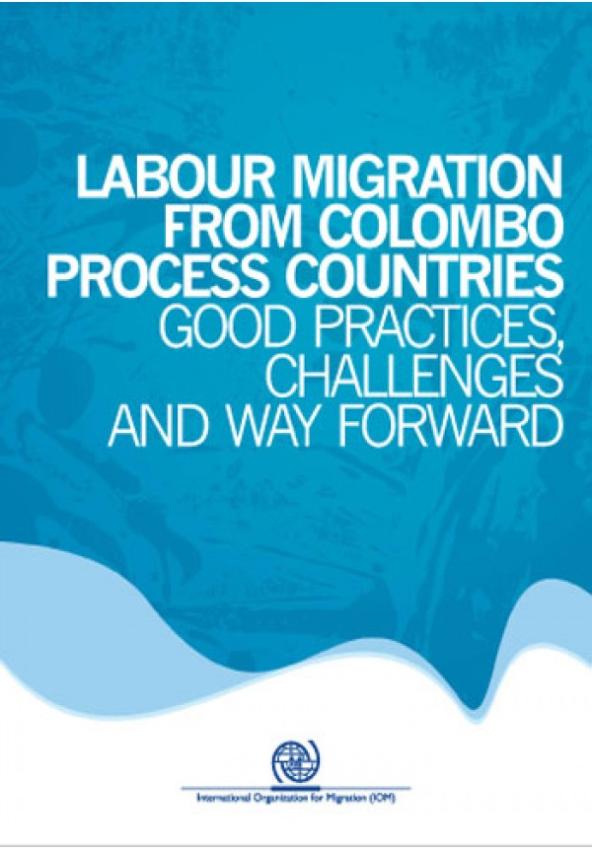Labour migration from Colombo Process countries Good practices, challenges and ways forward
Labour Migration from Colombo Process Countries: Good Practices, Challenges and Way Forward is the official background paper prepared by the International Organization for Migration (IOM) to inform the Fourth Colombo Process Ministerial Meeting held in Dhaka, Bangladesh in 2011. The report takes stock of current labour migration trends in the region, offers an analysis of good practices and identifies the challenges Colombo Process (CP) Member Countries face and their policy options in the immediate and long-term.
Since 2005, CP Member Countries have taken concrete, pro-active steps to manage labour migration through amending existing regulations or adopting new legislation, creating new government structures dedicated to managing labour outflow, and signing bilateral agreements (BAs) and memoranda of understanding (MOUs) with key destination countries. CP Member Countries have also launched innovative programmes and activities at different levels of government aimed at protecting labour migrants at home and abroad.
Despite success in key areas, however, difficult challenges remain, especially in implementation. There is often a gap between the aims of programmes as laid out on paper and how they are ultimately applied on the ground particularly on four key areas: disseminating of information, managing of the recruitment process, providing welfare support to migrants at both ends of the migration cycle and maximizing the benefits of labour migration. Success in any of these four areas requires serious investments in capacity building centered on a three-pronged strategy aimed at generating critical information, knowledge and policy-relevant research, formalizing practical dialogues and forging meaningful partnerships.
Subscribe to the Fair Recruitment Initiative Newsletter
Sign up to receive news delivered to your inbox.

